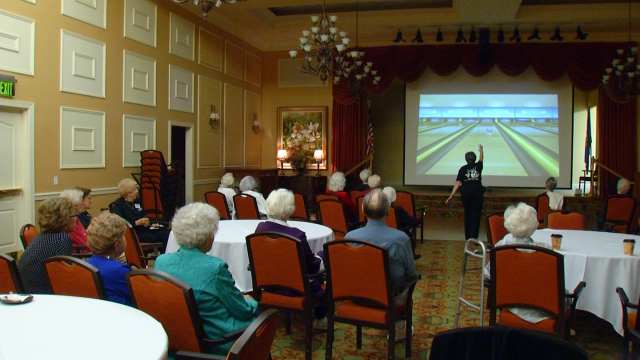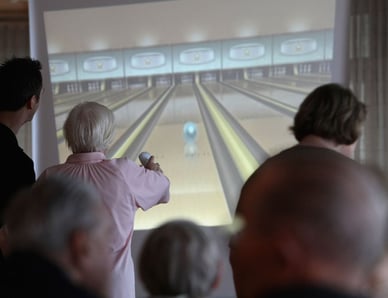
Video games. Not something we regularly associate with seniors, right?
Maybe that view needs to change. Because there’s some evidence now that playing video games may prolong memory and improve coordination in older people.
Older brains can be pushed to learn new tasks
In 2013, researchers at the University of California, San Francisco reported that video games could be used as an effective cognitive therapy for older patients.
The San Francisco experiment asked patients to play a 3D racing game, NeuroRacer, that required participants to simultaneously drive, avoid obstructions and read signs positioned along the side of the virtual road.
The signs displayed information that might or might not help the player to win. Players were tasked with discerning between relevant and irrelevant information — a significant cognitive challenge, especially in older people who aren’t able to form new memories as easily as younger people.
The study included participants from a wide age range, some more than 80 years old. The oldest participants showed unexpected improvement in performance with practice.
In fact, as a group, they became better at playing the game than some of the young adults in the study. And their improved game performance was still evident at a re-evaluation conducted six months after the initial study, even without additional practice.
The study found that older participants’ overall ability to concentrate improved even outside of the lab. The researchers noted that older participants’ short-term and long-term memories improved, too.
They didn’t just become better at playing a video game — they became sharper and more focused overall.
The UCSF team was careful to note that not every video game may help to re-train the brain's ability to focus and multitask. Nonetheless, the researchers were encouraged by the results of their experiment. And they hypothesized that video games might be designed with cognitive therapy in mind.
“We transferred the benefit from inside the game to different cognitive abilities,” said Dr. Adam Gazzaley, the lead researcher on the project. "That is the most grabbing thing here."
But, he cautioned, “There’s a big leap between what we did here and the real world.”
Fun and focused residents
It’s still debatable how much benefit seniors could derive, clinically speaking, from playing video games. But it certainly can’t hurt to try. And there’s definitely a socialization benefit to be realized. We see that here at Deupree House every year, when we host our annual Wii Bowling tournament.
Nintendo’s motion-activated Wii system controller allows the mimicking of real-life sports movements to be mirrored in the action on screen. That makes it an ideal gaming system for seniors — Wii sports games are easy to play, even for older people who have little to no experience playing video games.
Many retirement communities around the country use games like Wii Bowling to help their residents stay active and socialize.
Our residents form their own virtual bowling teams to compete against one another. For a month prior to our community tournament, teams get together to practice their Wii Bowling skills. And, the night of the tournament, we all gather for the big contest and a lot of fun.
Are video games the next big frontier for cognitive disorder treatments and memory care therapies? Maybe. There’s a lot more research to be done. But they’re definitely an avenue for keeping seniors engaged with the world around them.
At our annual Deupree House Wii Bowling tournament, there’s always a party atmosphere. It helps our residents to meet and develop friendships with their neighbors.
And, if there’s an added cognitive benefit for seniors, well, that’s just like finding a hidden power-up.












